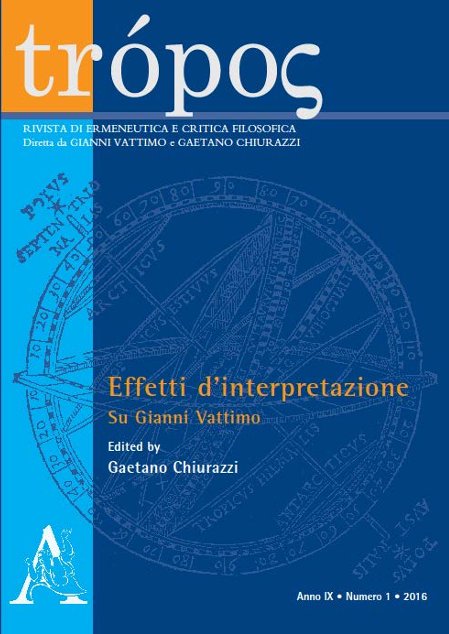Tempo e/è concetto
Storia degli effetti di una virgola
DOI:
https://doi.org/10.13135/2036-542X/8117Parole chiave:
time, spirit, concept, history, commaAbstract
This articles examines the relation between time and concept in Hegel, with a particular attention to the final pages of Phenomenology of Spirit where the cancellation of time is discussed. The main objective of our analysis is to delineate two possible identifications of time and concept in the context of Italian translation of the sentence: “Time is the concept itself that exists there” (Zeit ist der Begriff, der da ist). The problematization begins with the question whether omission of the comma in Italian translation leads to the ontological radicalization of Hegel’s thought. Having firstly taken into consideration Kojève’s reading of the identity between time and concept, and secondly Vattimo’s translation of Gadamer’s sentence “Das Sein, das verstanden werden kann, ist Sprache”, the paper points out that “translating without a comma” introduces a hermeneutical dimension of Hegel’s absolute knowing through which there is no conceptuality beyond temporality. On the other side, this conclusion will shed new light on the theme of cancellation or annihilation of time: what is annihilated is not time as such, but a certain modus of time, allowing exactly the passage to the history and its constitution as begriffene Geschichte. In that regard, the paper also deals with Heidegger’s critique of the vulgar conception of time and with Derrida’s readings as well.



